Table of Contents
What Is Rust?
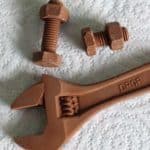 In this tutorial, we will provide you with a basic knowledge of rust proofing, making a DIY rust remover and the beginning of a future hatred of Tommy Walsh.
In this tutorial, we will provide you with a basic knowledge of rust proofing, making a DIY rust remover and the beginning of a future hatred of Tommy Walsh.
Rust otherwise known as iron oxide is the chemical reaction between iron, oxygen and water. While rust is generally mistaken as a blanket term for corroded metals, it should only refer to iron and it’s alloys, such as steel. Salt and acidic water sources such as those found in acid rain can rapidly increase the rate of corrosion.
Care should be taken to not confuse iron oxide rust for corrosion, for example; an aluminium window frame will tarnish and build up a protective layer on its surface, whereas steel will rust and produce red oxide rust.
If you’ve ever left a tool outside of your boat or on deck for a few days, you’ll be no stranger to how quickly rust can affect tools in the marine environment. Not only are the effects of rust a major eyesore, but they can also affect your tools functionality and often render them useless. An adjustable spanner for example; will seize, and once this has happens it becomes awkward to clean even if you soak it in a cleaning agent or rust removal liquid.
Your Options
 Non-rusting tools – Buy very expensive rust proof tools that are made from bronze or stainless steel. Aluminium-Bronze tools are renowned for their ability to not cause sparks as well as being highly corrosive resistance. Whilst stainless steel tools are harder, widely available, and often more affordable.
Non-rusting tools – Buy very expensive rust proof tools that are made from bronze or stainless steel. Aluminium-Bronze tools are renowned for their ability to not cause sparks as well as being highly corrosive resistance. Whilst stainless steel tools are harder, widely available, and often more affordable.- Take up scoober diving find an old WWII LVT 2 A gator ship wreck and pillage their bronze alloy tool set. Yes -that’s right apparently that’s how corrosive proof these tools really are.
 Rust Remover – Buy what you can afford and take very good care of it. Usually Chrome Vanadium forged steel. Tools are so cheap these days that you can pick them up in pound land, that given, the handle will probably snap off before you can turn a screw. If you don’t believe me ask Tommy Walsh, he has a shockingly poor range of tools that are sold prodominantly in pound stores!
Rust Remover – Buy what you can afford and take very good care of it. Usually Chrome Vanadium forged steel. Tools are so cheap these days that you can pick them up in pound land, that given, the handle will probably snap off before you can turn a screw. If you don’t believe me ask Tommy Walsh, he has a shockingly poor range of tools that are sold prodominantly in pound stores!
Rust Remover & Tool Treatment For Us Poor Folk
Distilled white vinegar is one of the cheapest ways to get your tools back in order. Full submerging of tools in a bath of white distilled vinegar will remove most, if not all rust.
-

BUY NOW – Plastic Dipping Box Pick up a large amount of distilled white vinegar from a wholesalers. I found my supply at an Asian supermarket for no more than £5.00 a litre. It’s best to buy from a local shop because of the high costs involved in shipping heavy liquids.
- Find or buy a plastic shoe storage box; they make for a perfect dipping tank. Most tools will fit into a long box and it will use less vinegar to fill a few inches. Just make sure all of your tools are fully submerged and then chuck a lid on top to stop spillages.
- Leave for a few hours until the vinegar has done its job. White distilled vinegar contains a chemical called acetic acid which is weak and reacts to iron oxide, forming a new layer on top. You should notice after a few hours bubbles coming from any patches of rust
Protection
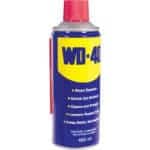 Oil is one of the best rust inhibitors – Apply WD40 to your now clean tools. This works by adding a layer of protection to the surface of the metal; its essentiality an oil barrier. You could do the same using a household cooking oil , mineral oil or any other type, however, the results won’t last and may harbour dirt. Make sure you wipe all of your tools clean afterwards leaving a thin protective layer of WD40. WD40 is also a great rust remover, however, you will get better results cleaning the surface before hand and using it to finish.
Oil is one of the best rust inhibitors – Apply WD40 to your now clean tools. This works by adding a layer of protection to the surface of the metal; its essentiality an oil barrier. You could do the same using a household cooking oil , mineral oil or any other type, however, the results won’t last and may harbour dirt. Make sure you wipe all of your tools clean afterwards leaving a thin protective layer of WD40. WD40 is also a great rust remover, however, you will get better results cleaning the surface before hand and using it to finish.
Storage And Climate Control
Storing your tools in a dry and dirt free area will help prolong their life. Humidity comes into play again here; by taking the steps to withdraw moisture from the air you are now hindering the chemical reaction of iron, oxygen and water. Use a dehumidifier in your workshop and always make sure your tools are put away dry. You can also use moisture absorbers in tool boxes but they will only work for a short period.
Want to know more about metals and how they can be farbicated? Checkout the Welding Tech Glossary
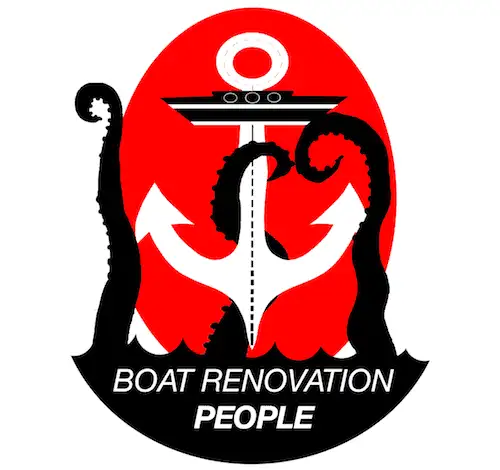
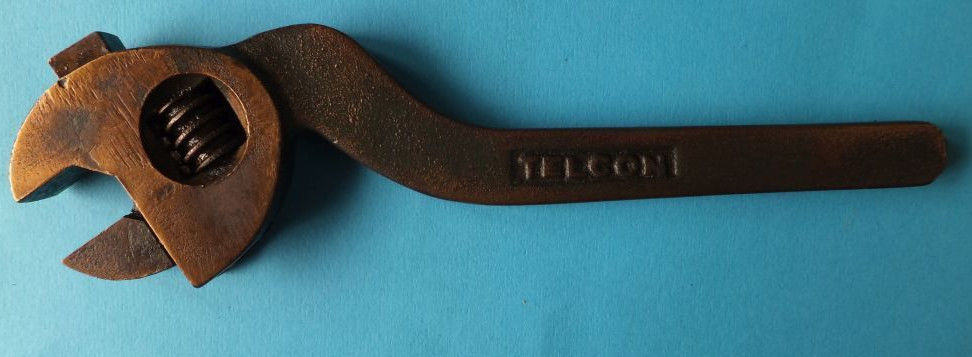
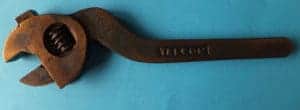 Non-rusting tools – Buy very expensive rust proof tools that are made from bronze or stainless steel. Aluminium-Bronze tools are renowned for their ability to not cause sparks as well as being highly corrosive resistance. Whilst stainless steel tools are harder, widely available, and often more affordable.
Non-rusting tools – Buy very expensive rust proof tools that are made from bronze or stainless steel. Aluminium-Bronze tools are renowned for their ability to not cause sparks as well as being highly corrosive resistance. Whilst stainless steel tools are harder, widely available, and often more affordable. Rust Remover – Buy what you can afford and take very good care of it. Usually Chrome Vanadium forged steel. Tools are so cheap these days that you can pick them up in pound land, that given, the handle will probably snap off before you can turn a screw. If you don’t believe me ask Tommy Walsh, he has a shockingly poor range of tools that are sold prodominantly in pound stores!
Rust Remover – Buy what you can afford and take very good care of it. Usually Chrome Vanadium forged steel. Tools are so cheap these days that you can pick them up in pound land, that given, the handle will probably snap off before you can turn a screw. If you don’t believe me ask Tommy Walsh, he has a shockingly poor range of tools that are sold prodominantly in pound stores!
very helpful many thanks
I’m quite impressed that you managed to somehow link your username to your Facebook group haha?